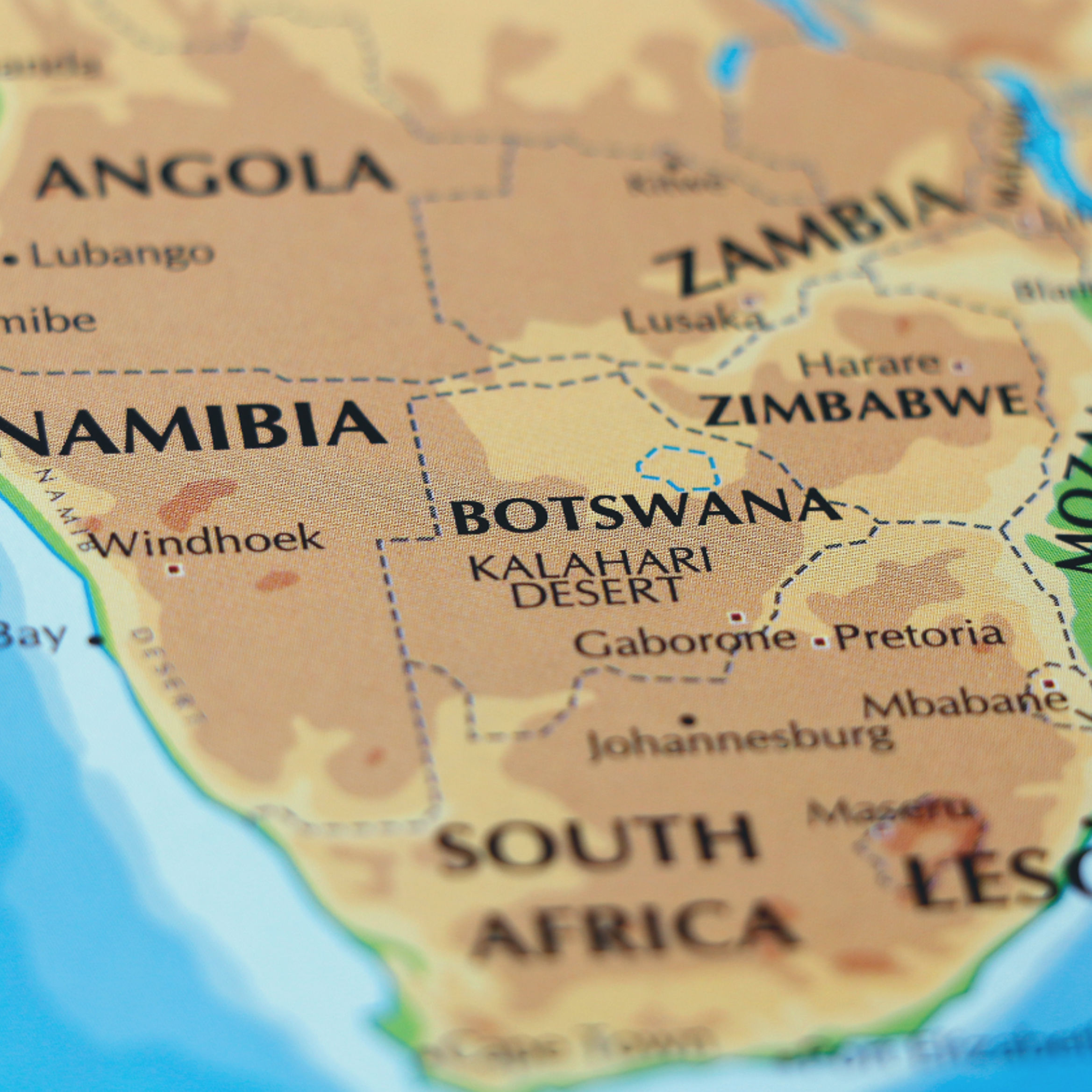Southern Africa
Southern Africa, a strategic region rich in natural resources, is studied through its electoral processes, its security challenges and the relations of the states that make it up with their partners.

From Friends to Partners? The Changing Nature of Sino-Tanzanian Relations
Since the post-colonial period, China and Tanzania have maintained a close diplomatic relationship. This note offers a subtle analysis of the changing relationship between both countries since the 1960s. It assesses the economic ties and studies the collaboration of both countries in the agriculture, health, education and security sectors.
Ituri : Resurgence of Conflict and Failure of Peacebuilding Policy
In the far northeast of the Democratic Republic of Congo, the province of Ituri experienced a decade of relative peace between 2007 and 2017 and is nowadays victim of the resurgence of its historic inter-communal conflict between the Hema and the Lendu.
A Kingdom in Troubled Waters: Lesotho's Forgotten Political and Security Crises
Lesotho is a landlocked mountain kingdom encased in South Africa for which it is a reservoir of water and labor. This kingdom of tormented creation is in a structural political and security crisis. Since 1993 and the return to multiparty politics, all elections, except that of 2002, needed regional mediation.
Central African Social Media at the Dawn of the Elections : An Advanced Symptom of a Coming Political Crisis
Although the Central African Republic remains a very weakly connected country with an Internet penetration rate of 14% in 2020, citizens begin to appropriate the use of social networks.
Post-Nkurunziza : The Total Supremacy of the CNDD-FDD
Despite the coronavirus pandemic and the passing of President Pierre Nkurunziza on June 8, 2020, the election cycle (presidential, legislative, senatorial, communal and hillside elections) have been upheld and went smoothly. Not only has the ruling party, the National Council for the Defense of Democracy-Forces for the Defense of Democracy (CNDD-FDD) remained in power, but it has also consolidated its dominance over an institutional system that had been modified with the 2018 constitutional revision.
Tanzania’s 2020 Election: Return of the One-Party State
Beginning with early voting in Zanzibar on October 27, 2020, Tanzanians went to the polls in a general election for district councilors, Members of Parliament (MPs) and the President. As official results began to be declared, it became clear that Tanzania’s long-time ruling party, Chama Cha Mapinduzi, had won a landslide.
Tanzania’s 2020 General Elections between Repression and Manipulation. A Consolidation of Magufuli’s “Authoritarian Turn”?
Tanzanian voters were called to the polls on Wednesday, October 28, 2020 to elect the country’s main political institution – the President, the National Assembly, and the District Councillors (diwani). Without surprise, the outcome of the sixth general elections since the reintroduction of multiparty politics in 1992 reaffirmed the longstanding grip on power of Chama Cha Mapinduzi (CCM).
South Africa, A Fragile Democratic Model?
South Africa held general elections in May 2019. The African National Congress (ANC) emerged victorious, but failed to win over a majority of registered voters.
Ramaphosa’s Presidency: What Has Changed?
On the eve of the 25th anniversary of democracy in South Africa, the African National Congress (ANC) still holds power in a nearly hegemonic way. Nevertheless, the popularity of the party is decreasing while economic and social inequalities are deeply entrenched in the country.
Malawi: The Road to the 2019 Tripartite Elections. Reflections on Corruption, Land and Multiparty Politics
On May 21st 2019, Malawi will hold its tripartite elections, where voters will vote for the President, Members of Parliament and local Councillors. 2019 will also mark the 25 years of multiparty politics in Malawi since the one-party regime presided by Hastings Kamuzu Banda came to an end in 1994.
Support independent French research
Ifri, a foundation recognized as being of public utility, relies largely on private donors – companies and individuals – to guarantee its sustainability and intellectual independence. Through their funding, donors help maintain the Institute's position among the world's leading think tanks. By benefiting from an internationally recognized network and expertise, donors refine their understanding of geopolitical risk and its consequences on global politics and the economy. In 2024, Ifri will support more than 70 French and foreign companies and organizations.

















